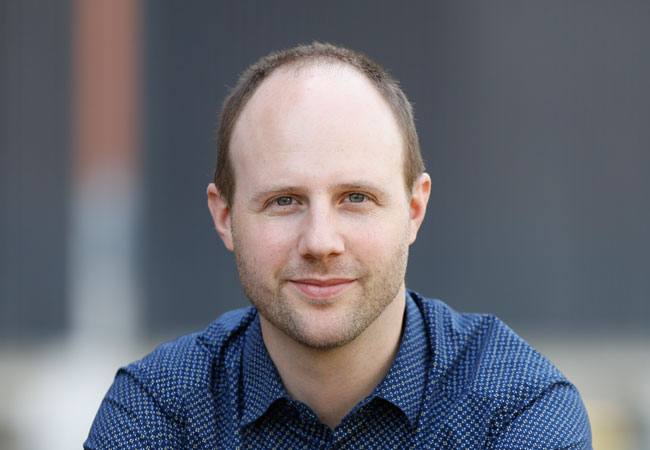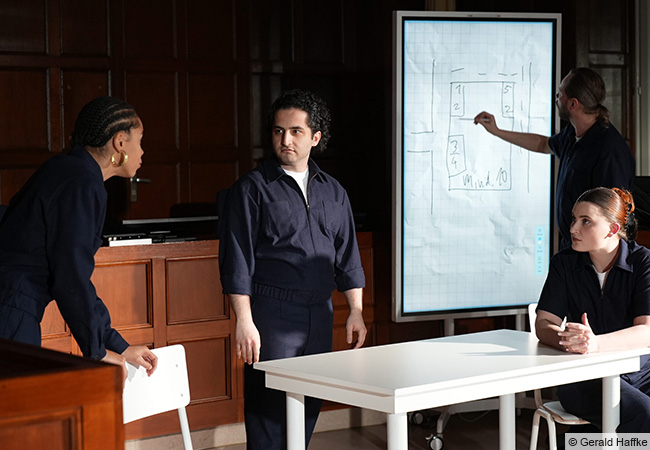On December 1, 2023, biochemist Dr. Christian Münch took up the Lichtenberg Endowed Professorship for Molecular Systems Medicine – a professorship permanently funded through foundation income that Goethe University Frankfurt has been able to acquire. Münch’s research will focus on the cellular level of neurodegenerative diseases and cancer in particular, with the aim of identifying new targets for their treatment. Providing the base capital of €2 million is the Volkswagen Foundation’s „Lichtenberg Endowed Professorships“ program. A further €3 million are made available by Johanna-Quandt-Universitätsstiftung, Alfons und Gertrud Kassel-Stiftung and Dr. Rolf M. Schwiete Stiftung.

Diseases put our body’s cells under stress: the finely balanced system of substance synthesis and degradation, as well as that of division and rest is thrown out of sync. To track down disease mechanisms and discover starting points for new therapies, Prof. Christian Münch will focus on the cell as a whole rather than on individual metabolic or signaling pathways. His professorship centers on two projects: The first addresses the role played by the „endoplasmic reticulum“ complex membrane system in both neurodegenerative diseases and the development of cancer. The second focuses on how – through certain enzymes that shred proteins – the cell ensures its balance (homeostasis) during protein synthesis and degradation. If such enzymes (proteases) are dysregulated, this can result in the formation of plaques between nerve cells, as in Alzheimer’s disease, for example.
Commenting on the professorship, Goethe University President Prof. Enrico Schleiff called it a special day for the university: „Today we are not only able to gain an outstanding scientist for Goethe University, who researches and teaches in the highly topical and future-oriented field of molecular systems medicine. By joining with Volkswagen Foundation, Johanna-Quandt-Universitätsstiftung, Alfons und Gertrud Kassel-Stiftung and Dr. Rolf M. Schwiete Stiftung, we have succeeded in firmly establishing and financing this professorship and thus the field of research at Goethe University Frankfurt for the long term. It is precisely this type of long-term funding that opens up opportunities for new scientific avenues, and we are extremely grateful to the foundations for making this possible.“
Dr. Henrike Hartmann, Volkswagen Foundation deputy secretary general and head of its funding department, said: „We are delighted that our support has helped Goethe University create a lasting perspective for Christian Münch – an outstanding scientist in a promising research field.“
„At the heart of the Johanna-Quandt-Universitätsstiftung, through which we have been supporting science, research and teaching at Goethe University Frankfurt and its partners since 2008, stands the Johanna Quandt-Jubiläumsfonds,“ said Stefan Quandt, chairman of the foundation’s advisory board. „Using its funds, we launched the Johanna Quandt Young Academy in 2018, for example, which supports young talent at Goethe University. The co-financing of Prof. Münch’s Lichtenberg Endowed Professorship was therefore a matter close to our hearts. We are delighted to be able to contribute to giving this talented scientist a long-term perspective at Goethe University.“
Gunther Ruppel from Alfons und Gertrud Kassel-Stiftung emphasized: „Our founder, Gertrud Kassel, was convinced that science needs ‚clever young people in Germany‘. We are very happy to contribute to Prof. Münch’s Lichtenberg Endowed Professorship, which is in keeping with the tradition of our benefactors.“
Dr. Jürgen Staiger, chairman of Dr. Rolf M. Schwiete Stiftung, said: „We have already been able to fund a whole series of endowed professorships, particularly in Goethe University’s Faculty of Medicine, for longer-term but nevertheless always temporary periods. In the spirit of our founder, the Lichtenberg Endowed Professorship now offers us the opportunity to establish a sustainable and permanent professorship.“
Christian Münch received his PhD from the University of Cambridge and worked as a postdoctoral fellow at Harvard Medical School. He has been head of the protein quality control research group and the Quantitative Proteomics Unit at Goethe University Frankfurt’s Institute of Biochemistry II since 2016. His research focuses on cellular stress responses to misfolded proteins in the cell’s power plants (mitochondria) as well as infections and diseases. His aim is to understand how the entire cell system reacts to stress. Münch has already received an ERC Starting Grant, an Emmy Noether Grant, an ERC Consolidator Grant as well as a number of awards for his work. He is an EMBO Young Investigator and a steering committee member in the Federal Ministry of Education and Research’s Cluster4Future Proxidrugs, the Collaborative Research Center 1177 on selective autophagy, the Fraunhofer High-Performance Center TheraNova, and the EMTHERA (Emerging Therapies) research cluster initiative led by Goethe University. Münch accepted a Lichtenberg Endowed Professorship at Goethe University Frankfurt in 2023.







